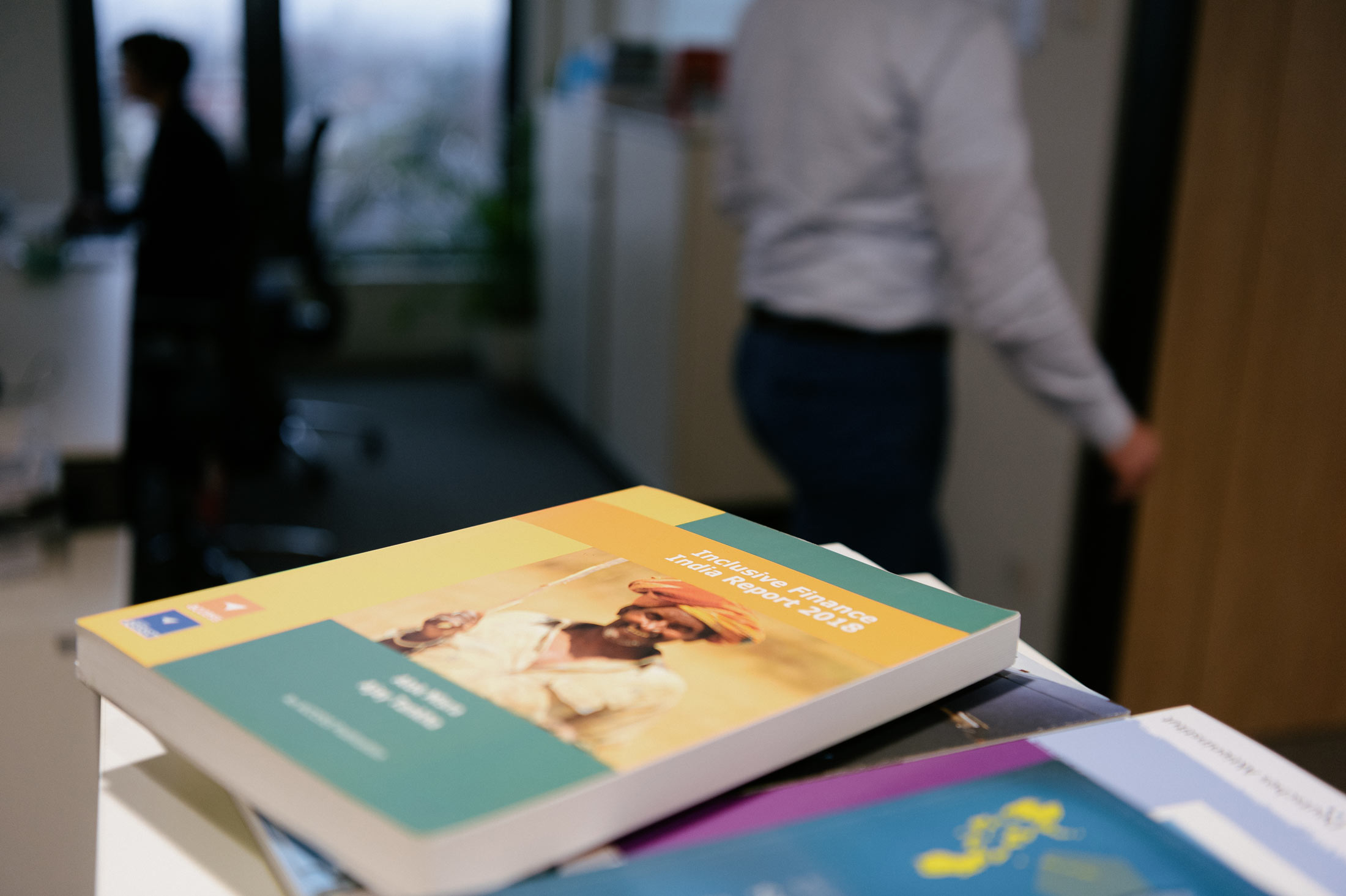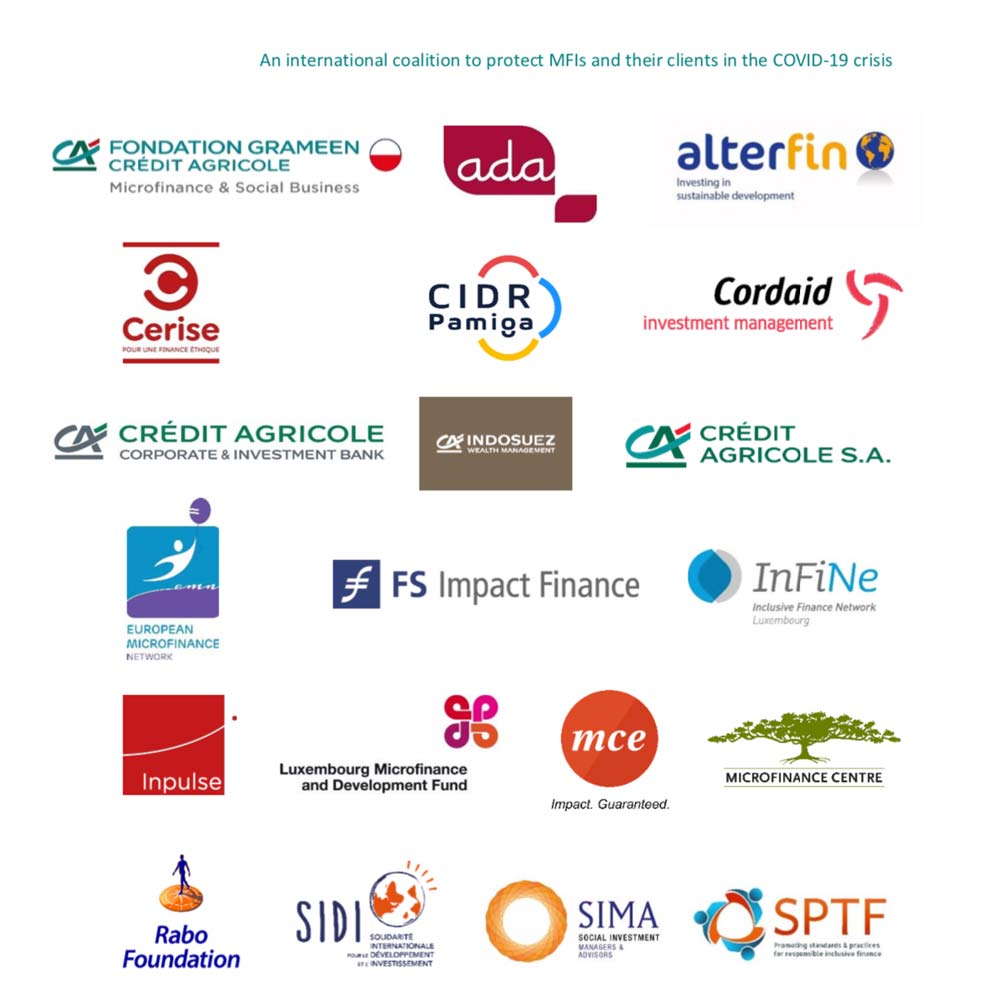Torsten Becker
Torsten joined FS Impact Finance in February 2017. As Senior Portfolio Manager he has been contributing significantly to the growth and development of the GLS Microfinance Fund.
Torsten joined FS Impact Finance in February 2017. As Senior Portfolio Manager he has been contributing significantly to the growth and development of the GLS Microfinance Fund.

May 2020. At the initiative of Grameen Crédit Agricole Foundation, a group of microfinance lenders and key players in inclusive finance worked on a set of principles to better support the microfinance sector in the health and economic crisis caused by the Covid-19. Grameen Crédit Agricole Foundation, ADA, Alterfin, Cerise, CIDR Pamiga, Cordaid Investment Management, Crédit Agricole CIB India, CA Indosuez Wealth (Asset Management), Crédit Agricole S.A., European Microfinance Network, FS Impact Finance, InFiNe.lu, Inpulse, Luxembourg Microfinance And Development Fund, MCE Social Capital, Microfinance Centre, Rabo Foundation, SIDI, SIMA and Social Performance Task Force are the first signatories of a common pledge that aims to support microfinance institutions and fragile clienteles during this crisis.
Worldwide, microfinance institutions provide financial and non-financial products and services to over 140 million low-income clients1. Microfinance is key to finance income-generating activities, not only in the formal but also in the informal sector. In the Covid-19 crisis, both micro-enterprises in the informal economy and small businesses overall form an essential basis for social and economic recovery. Supporting microfinance institutions in this context is therefore of vital importance to protect the most vulnerable borrowers.
In response, this group took on the challenge and established a common pledge: “Key principles to protect microfinance institutions and their clients in the Covid-19 crisis”. It aims to guide lenders and other stakeholders to better support microfinance institutions and fragile clienteles during this crisis. It is inspired by best practices and tools of the microfinance sector, such as the work done by the Social Performance Task Force2 and the IAMFI Microfinance Voluntary Debt Workout Principles.3
In this pledge [read full pledge here], the pooling of available information, analyses and anticipations, as well as the concerted implementation of shared decisions are the fundamental principles. The signatories agree to coordinate policies, technical assistance and resources to help microfinance institutions face the crisis. The objective is to protect both the microfinance institutions and their clients to ensure the continued access to funding in the best possible conditions and to look out for clients’ and staff well- being.
As individual obligations and mandates may influence the way the provisions of the pledge are implemented, it is not intended as a legally binding agreement. This is not a frozen document; it could be improved if necessary to better respond to the evolution of the crisis. The pledge’s signatories will maintain open communication with their peers, to share their decisions and to comply with these principles.
The signatories welcome additional stakeholders to join this common and engaged initiative. The involvement of private, public and solidarity players is key in the global assessment and support to the microfinance institutions’ actions. It is essential to reinforce the impact of financial inclusion to fight poverty in this unprecedented context.

Footnotes
1 Microfinance Barometer 2019
2 https://sptf.info/resources/covid19
3 Charting the Course: Best Practices and Tools for Voluntary Debt Restructurings in Microfinance, IAMFI, Morgan Stanley, 2011. The document is available on Findev Gateway
Press contact
FS Impact Finance
Torsten Becker
Senior Portfolio Manager
t.becker@fs-finance.com
Read the full pledge here.
